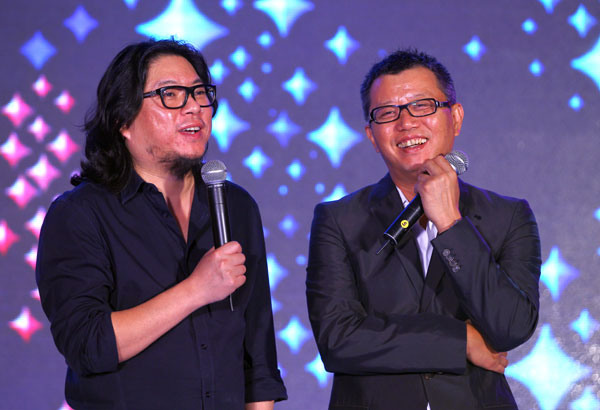This year’s edition of Midem, the high-profile music conference in Cannes, has a curious Chinese presence as a keynote speaker.
Gao Xiaosong, Chairman of China’s Alibaba Music Group, is due to deliver a talk on “why the major Western record labels have failed in addressing the East Asian music markets, especially China.”
Note that “failed” here probably refers to an inability to “instantly reap enormous profits”, something the music industry has consistently managed to do elsewhere in the world.
Even with the supposed threat of streaming services and online piracy, the biggest corporations, Universal among them, have posted some of their largest profits yet. Many report strong growth and momentum, and are looking to markets like China as the next frontier to drive revenue.
That frontier, so far, has remained largely closed. So enter the Chinese industry pundit to explain what’s going on.
Gao, reportedly, attributes this failure to “differences in fan culture.”
“He will also talk about how the Alibaba Music Group will disrupt and catalyse not only the Chinese music industry, but also the international music business.”
That’s a bold claim. As chairman of a highly visible new music division of a giant Chinese e-commerce company, Gao is well placed to offer some real insight here. He’s also a veteran of the industry, having started as a songwriter and singer (becoming, at one point, a sort-of campus folk icon) before a string of ventures with his long-time partner Song Ke, who is also at Alibaba Music Group now.
It’s these ventures that need to be critically unpacked. Gao has made bold claims of ‘disruption’ (whatever that means) before, and their failures offer a warning sign about the particular corporate worldview Gao and Song Ke represent.
In 2004, they founded Rye Music, an independent music label with big ambitions. Their early signees included Li Yichun a.k.a Chris Lee, who recently signed with PC Music. Rye eventually sold to Taihe (therefore being considered a ‘success’ in startup terms), but failed to create the sustainable tier of breakout pop stars it wanted to. Rye dominated the late halcyon days of recorded music and CD sales, but failed to anticipate their sudden decline.
Subsequently, Gao served as Managing Director at Hengda Music (connected to the Evergrande Real Estate Group), which tried and failed to create a network of high-profile music festivals around the country and subsequently diminished into insignificance.
All this, of course, may have no bearing on how Alibaba Music Group fares, but it’s important to remember that bold claims of ‘disruption’ often hide an impatience to work with local idiosyncrasies and a tendency to break rather than shape local, organic developments in music.
The fundamental changes that the Chinese music business needs cannot, and in many cases will not, come from large corporations. Some of these are regulatory, such as royalty reporting and more transparent accounting. Some of them are questions of cultural value, such as the licensing apparatus for performances. Others are political or ideological.
It’s hard to escape the sense that the word ‘disruption’ is a smokescreen here. What Gao probably means is the discovery of a new revenue source, hidden under the imperative to ‘catalyse’ the music business.
Looking at “fan culture” as something to exploit for profit may help the industry, but not the music that makes it tick. The Chinese music business doesn’t need this kind of “disruption” – it needs people and companies willing to go the long haul, willing to treat local music with respect, and willing to build institutions and infrastructure that will last.
